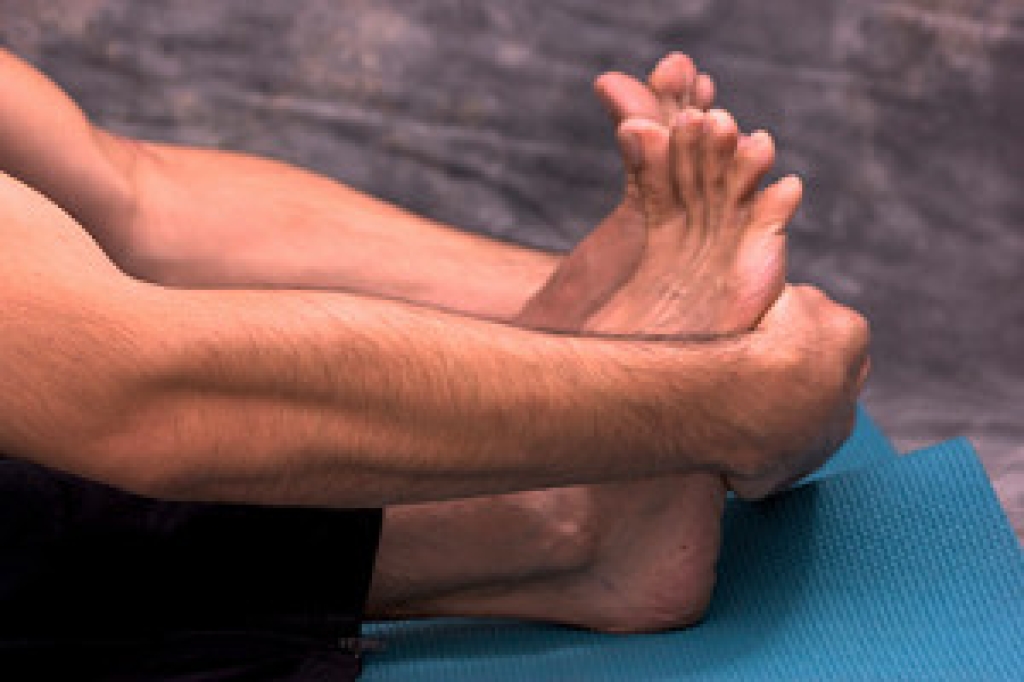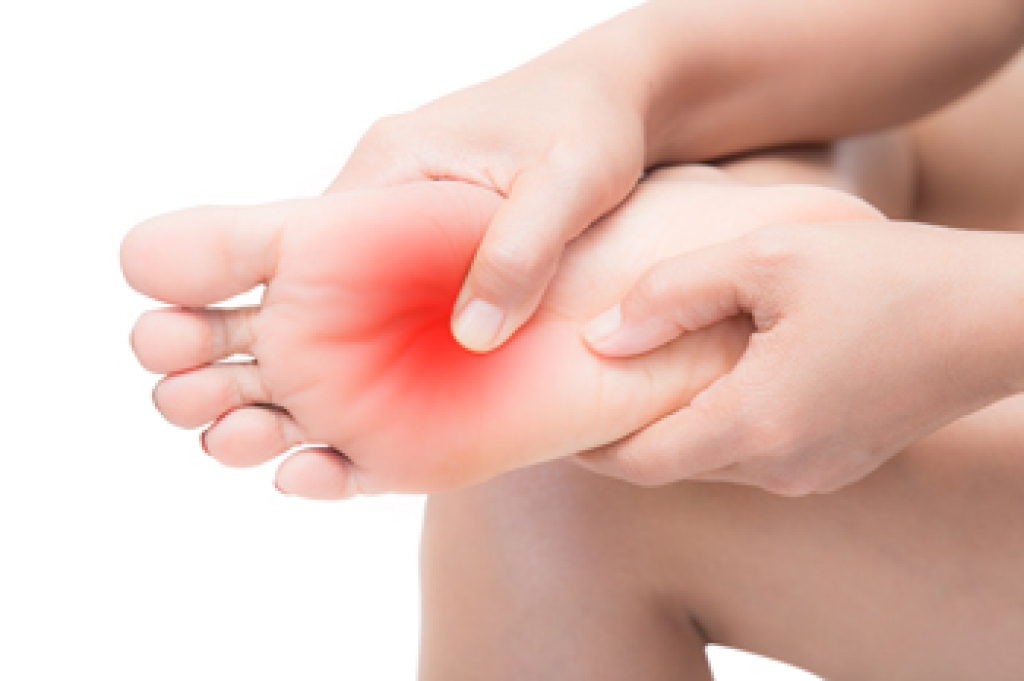Blog
Types of Stretches
 The sport of running or jogging can be more enjoyable when the muscles are properly stretched. Many runners practice static stretching, which enables the muscles and tendons to become more flexible. However, research has shown this type of stretch may inhibit nerve contraction, which may have a negative impact on how fast you can run. It may be more advantageous to perform stretches than can increase the range of motion before embarking on a run. Additionally, it is important to stretch the calves after a run is completed, as this may help to loosen any tight muscles. If you’re interested in learning more about the benefits of stretching the feet before and after running, it is suggested that you consult with a podiatrist.
The sport of running or jogging can be more enjoyable when the muscles are properly stretched. Many runners practice static stretching, which enables the muscles and tendons to become more flexible. However, research has shown this type of stretch may inhibit nerve contraction, which may have a negative impact on how fast you can run. It may be more advantageous to perform stretches than can increase the range of motion before embarking on a run. Additionally, it is important to stretch the calves after a run is completed, as this may help to loosen any tight muscles. If you’re interested in learning more about the benefits of stretching the feet before and after running, it is suggested that you consult with a podiatrist.
Why Stretching Is Important for Your Feet
Stretching the feet is a great way to prevent injuries. If you have any concerns with your feet consult with one of our podiatrists from PA Foot & Ankle Associates. Our doctors will assess your condition and provide you with quality foot and ankle treatment.
Stretching the Feet
Stretching the muscles in the foot is an important part in any physical activity. Feet that are tight can lead to less flexibility and make you more prone to injury. One of the most common forms of foot pain, plantar fasciitis, can be stretched out to help ease the pain. Stretching can not only ease pain from plantar fasciitis but also prevent it as well. However, it is important to see a podiatrist first to determine if stretching is right for you. Podiatrists can also recommend other ways to stretch your feet. Once you know whether stretching is right for you, here are some excellent stretches you can do.
- Using a foam roller or any cylindrical object (a water bottle or soda can will do), roll the object under your foot back and forth. You should also exert pressure on the object. Be sure to do this to both feet for a minute. Do this exercise three times each.
- Similar to the previous exercise, take a ball, such as a tennis ball, and roll it under your foot while seated and exert pressure on it.
- Grab a resistance band or towel and take a seat. If you are using a towel, fold it length wise. Next put either one between the ball of your foot and heel and pull with both hands on each side towards you. Hold this for 15 seconds and then switch feet. Do this three times for each foot.
- Finally hold your big toe while crossing one leg over the other. Pull the toe towards you and hold for 15 seconds. Once again do this three times per foot.
It is best to go easy when first stretching your foot and work your way up. If your foot starts hurting, stop exercising to ice and rest the foot. It is advised that you then see a podiatrist for help.
If you have any questions please contact one of our offices located in Allentown, Easton, Northampton, and Chew Street in Allentown, PA . We offer the newest diagnostic and treatment technologies for all your foot and ankle needs.
Signs You May Have Developed Neuropathy
 Neuropathy is a condition that affects the feet, specifically causing them to lose feeling. This can be incredibly dangerous, especially if you have developed a serious foot condition and can not feel the symptoms of it. Neuropathy may also alter the shape of your foot. Your arch may be raised, your toes can begin to bend downward, and the bones at the ball of your foot may protrude outward. When the shape of the foot changes, it in turn changes its overall function as well. To keep your feet comfortable, you may want to look into wearing shoes with extra support. Other signs that indicate you may have developed neuropathy include sensations of numbness, stinging, burning, and stabbing aches and pains. Hypersensitivity, as well as dry or cracked skin may develop due to neuropathy. In order to receive a proper diagnosis, and a suggested plan for treatment, we recommend you consult with a podiatrist for professional care.
Neuropathy is a condition that affects the feet, specifically causing them to lose feeling. This can be incredibly dangerous, especially if you have developed a serious foot condition and can not feel the symptoms of it. Neuropathy may also alter the shape of your foot. Your arch may be raised, your toes can begin to bend downward, and the bones at the ball of your foot may protrude outward. When the shape of the foot changes, it in turn changes its overall function as well. To keep your feet comfortable, you may want to look into wearing shoes with extra support. Other signs that indicate you may have developed neuropathy include sensations of numbness, stinging, burning, and stabbing aches and pains. Hypersensitivity, as well as dry or cracked skin may develop due to neuropathy. In order to receive a proper diagnosis, and a suggested plan for treatment, we recommend you consult with a podiatrist for professional care.
Neuropathy
Neuropathy can be a potentially serious condition, especially if it is left undiagnosed. If you have any concerns that you may be experiencing nerve loss in your feet, consult with one of our podiatrists from PA Foot & Ankle Associates. Our doctors will assess your condition and provide you with quality foot and ankle treatment for neuropathy.
What Is Neuropathy?
Neuropathy is a condition that leads to damage to the nerves in the body. Peripheral neuropathy, or neuropathy that affects your peripheral nervous system, usually occurs in the feet. Neuropathy can be triggered by a number of different causes. Such causes include diabetes, infections, cancers, disorders, and toxic substances.
Symptoms of Neuropathy Include:
- Numbness
- Sensation loss
- Prickling and tingling sensations
- Throbbing, freezing, burning pains
- Muscle weakness
Those with diabetes are at serious risk due to being unable to feel an ulcer on their feet. Diabetics usually also suffer from poor blood circulation. This can lead to the wound not healing, infections occurring, and the limb may have to be amputated.
Treatment
To treat neuropathy in the foot, podiatrists will first diagnose the cause of the neuropathy. Figuring out the underlying cause of the neuropathy will allow the podiatrist to prescribe the best treatment, whether it be caused by diabetes, toxic substance exposure, infection, etc. If the nerve has not died, then it’s possible that sensation may be able to return to the foot.
Pain medication may be issued for pain. Electrical nerve stimulation can be used to stimulate nerves. If the neuropathy is caused from pressure on the nerves, then surgery may be necessary.
If you have any questions, please feel free to contact one of our offices located in Allentown, Easton, Northampton, and Chew Street in Allentown, PA . We offer the newest diagnostic and treatment technologies for all your foot care needs.
Painful Joint Pain in the Feet
 The medical condition that is referred to as rheumatoid arthritis can affect the tissues in the joints of the feet as a result of a compromised immune system. The symptoms that generally accompany this ailment can consist of stiffness, severe pain, and difficulty walking. Many patients notice a constant achy feeling in their feet as the day progresses, and the feet may feel warm. There are specific parts of the foot that are typically impacted by this condition. These can include the small joints that are located between the bones in the toes, the ankle joint, and the joints that surround the heel bone. Treatment options to be considered can include soaking the affected foot in warm water which may help in reducing existing inflammation, or wearing a boot that may help to relieve pressure. If you are afflicted with this painful condition, it is strongly advised that you consult with a podiatrist who can choose the correct treatment for you.
The medical condition that is referred to as rheumatoid arthritis can affect the tissues in the joints of the feet as a result of a compromised immune system. The symptoms that generally accompany this ailment can consist of stiffness, severe pain, and difficulty walking. Many patients notice a constant achy feeling in their feet as the day progresses, and the feet may feel warm. There are specific parts of the foot that are typically impacted by this condition. These can include the small joints that are located between the bones in the toes, the ankle joint, and the joints that surround the heel bone. Treatment options to be considered can include soaking the affected foot in warm water which may help in reducing existing inflammation, or wearing a boot that may help to relieve pressure. If you are afflicted with this painful condition, it is strongly advised that you consult with a podiatrist who can choose the correct treatment for you.
Because RA affects more than just your joints, including the joints in your feet and ankles, it is important to seek early diagnosis from your podiatrist if you feel like the pain in your feet might be caused by RA. For more information, contact one of our podiatrists of PA Foot & Ankle Associates. Our doctors will assist you with all of your podiatric concerns.
What Is Rheumatoid Arthritis?
Rheumatoid Arthritis (RA) is an autoimmune disorder in which the body’s own immune system attacks the membranes surrounding the joints. Inflammation of the lining and eventually the destruction of the joint’s cartilage and bone occur, causing severe pain and immobility.
Rheumatoid Arthritis of the Feet
Although RA usually attacks multiple bones and joints throughout the entire body, almost 90 percent of cases result in pain in the foot or ankle area.
Symptoms
- Swelling and pain in the feet
- Stiffness in the feet
- Pain on the ball or sole of feet
- Joint shift and deformation
Diagnosis
Quick diagnosis of RA in the feet is important so that the podiatrist can treat the area effectively. Your doctor will ask you about your medical history, occupation, and lifestyle to determine the origin of the condition. Rheumatoid Factor tests help to determine if someone is affected by the disease.
If you have any questions, please feel free to contact one of our offices located in Allentown, Easton, Northampton, and Chew Street in Allentown, PA . We offer the newest diagnostic and treatment technologies for all your foot care needs.


